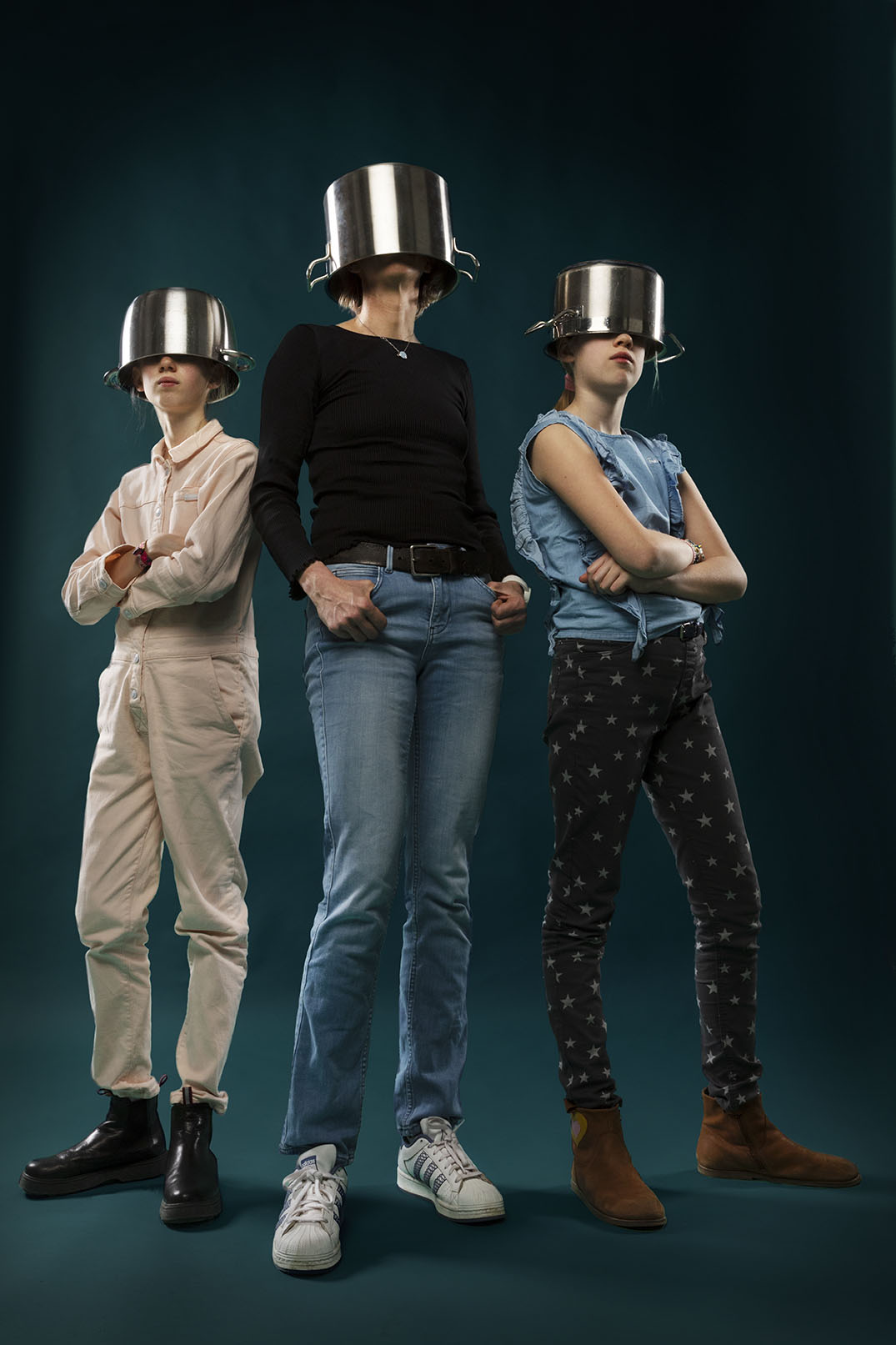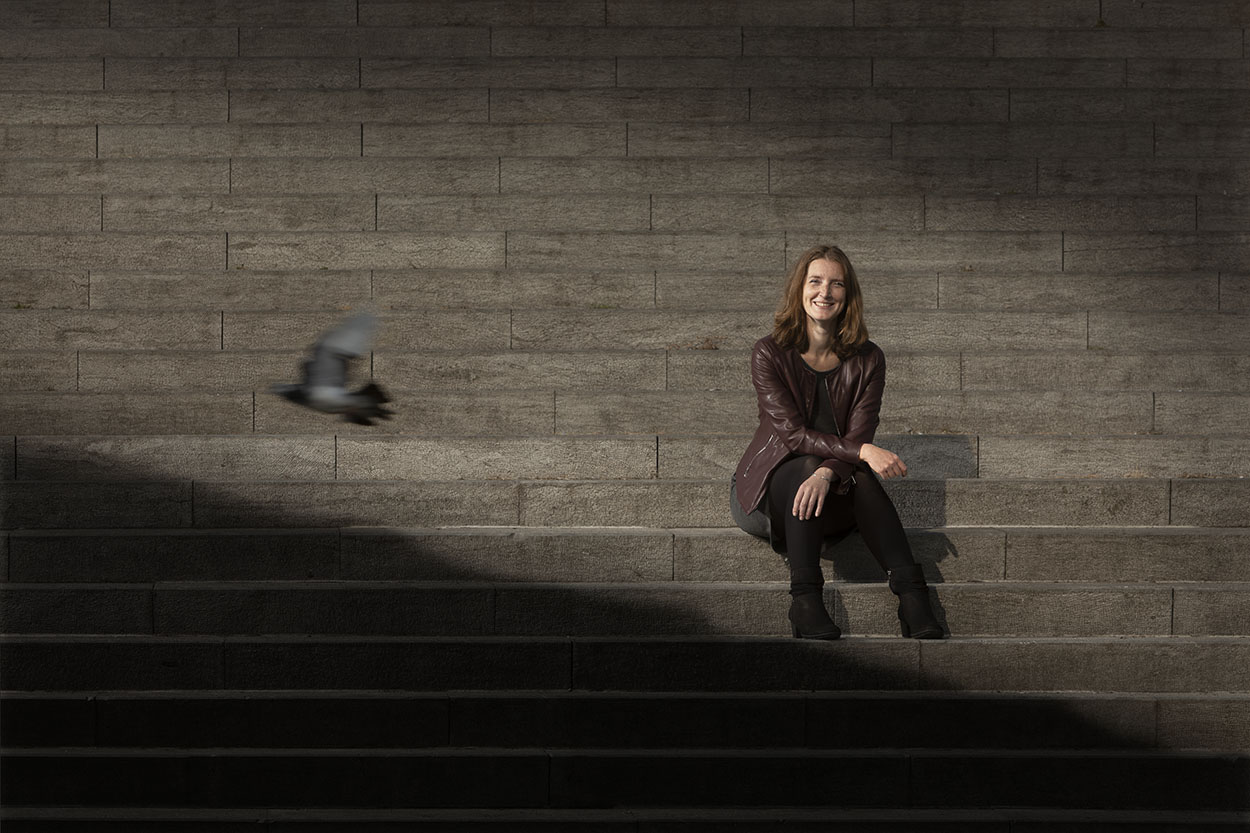Martin Paul: “I like being right, but I don’t mind being proven wrong”
He relishes a challenge, and the time felt right for the next step in his career. “I could have finished my term as university president and then hung around here as a professor for a few more years until I retired. But that didn’t strike me as exciting enough. I wanted one last chance to do something different.” On 1 November, Martin Paul will join the Ruhr-Universität Bochum (RUB) as its new rector/chair.
“They called me pretty much out of the blue to see if I was interested. Initially I said no, but after an exploratory conversation with the committee, the idea began to take root. I started thinking about my work here and realised that of everything I could’ve done, I’ve achieved 95%. Is it worth sticking around for that final 5% or better to try your hand something completely new? For example, I wouldn’t want to become president of another Dutch university; I’ve been there, done that. But I see it as a challenge to try to apply in Germany, where the culture is completely different, what I’ve come to know and appreciate here in the Maastricht system.”
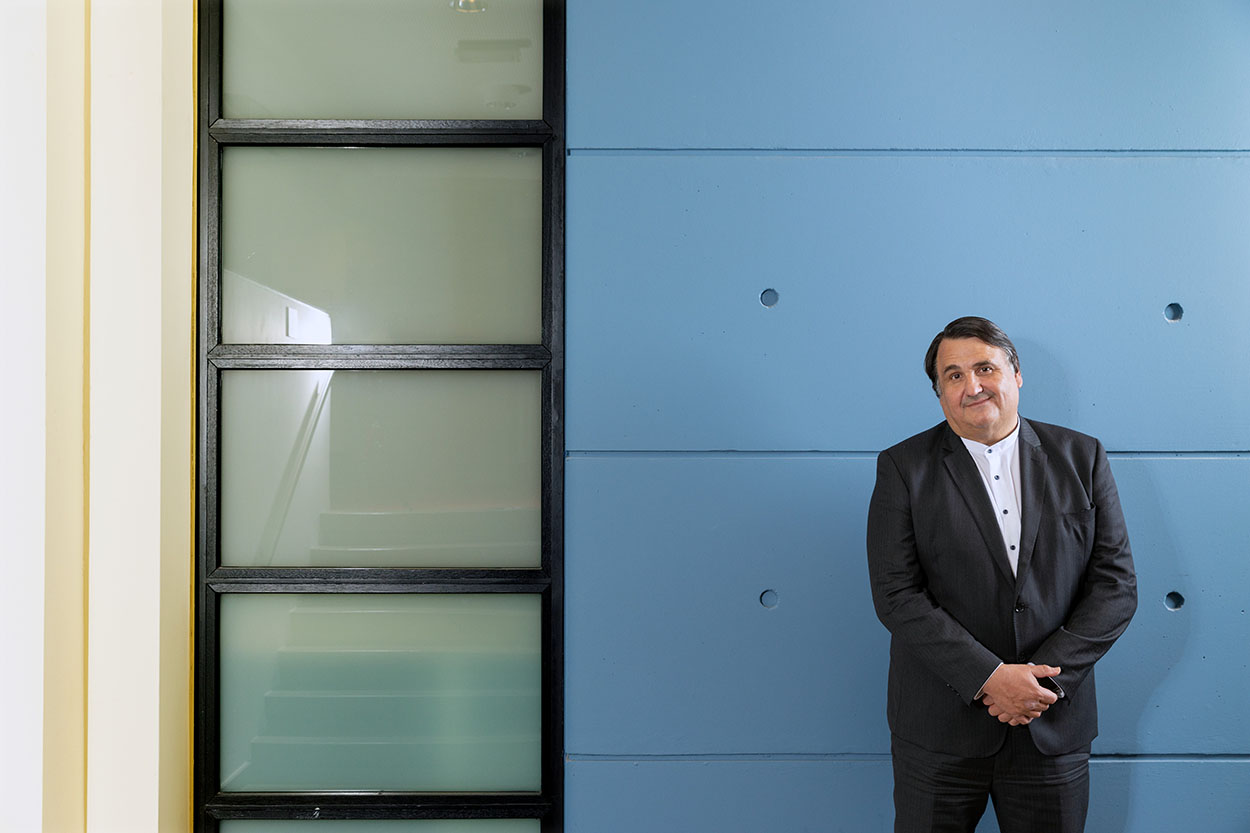
Seizing opportunities
Martin Paul was born and raised in St Ingbert in Saarland. “The area has a lot of steel industry and mines. It looks a bit like Limburg.” He was the first in the family to go to university. “My father would have liked to study, but wasn’t allowed to. My grandfather worked in the steel factory and my father started out as a bank clerk and later worked in administration at a large supermarket. My mother was a housewife; she’d had to quit her nursing studies because she was allergic to rubber gloves and disinfectants. They encouraged my sister and me to seize the opportunities we were given. She chose computer science, I chose medicine in Heidelberg.” Later, he more or less fell into research rather than medical practice. “A deciding factor was that doing research was a way of avoiding military service. I’m not a fan of uniforms and figured I’d always being able to go into medical practice later. Not anymore though,” he laughs.
Supported by a grant from the German Research Foundation, he left for Harvard. He stayed for four years and met his wife there. “When I returned from the US I went back to Heidelberg until I got a few offers of professorships, funnily enough also from Bochum. I was 35 at the time and opted for Berlin; I figured it’d be a little more exciting. And so we moved to Berlin.” As did his parents. “I grew up in a close family. My grandparents lived at home with us, so it was natural for me to have my parents nearby.”
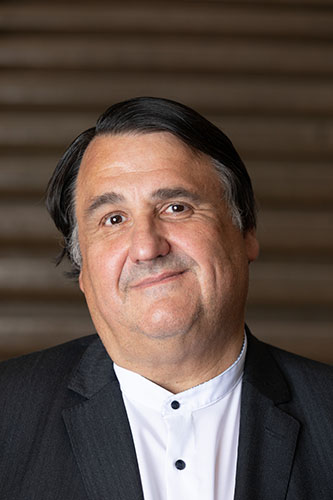
Martin Paul studied medicine at Heidelberg University and previously served as dean of the medical faculty of the Freie Universität and vice chair of the Board of Directors of the Charité university hospital in Berlin. In Maastricht, he was dean of the Faculty of Health, Medicine and Life Sciences and vice chair of the Maastricht University Medical Centre+, where he also holds a chair in Clinical Pharmacology. He was UM president from 2011 to 2021. He was elected as a member of the Dutch Academy of Technology and Innovation and the Austrian Science Council. He was also elected vice president of the Young European Research Universities Network and president of the Worldwide Universities Network. In 2019, he became president of YUFE. He has more than 300 publications to his name. Among numerous awards and prizes, Paul has received honorary doctorates from the University of Würzburg (Germany), the University of Rijeka (Croatia) and Lobachevsky University (Russia).
International dream
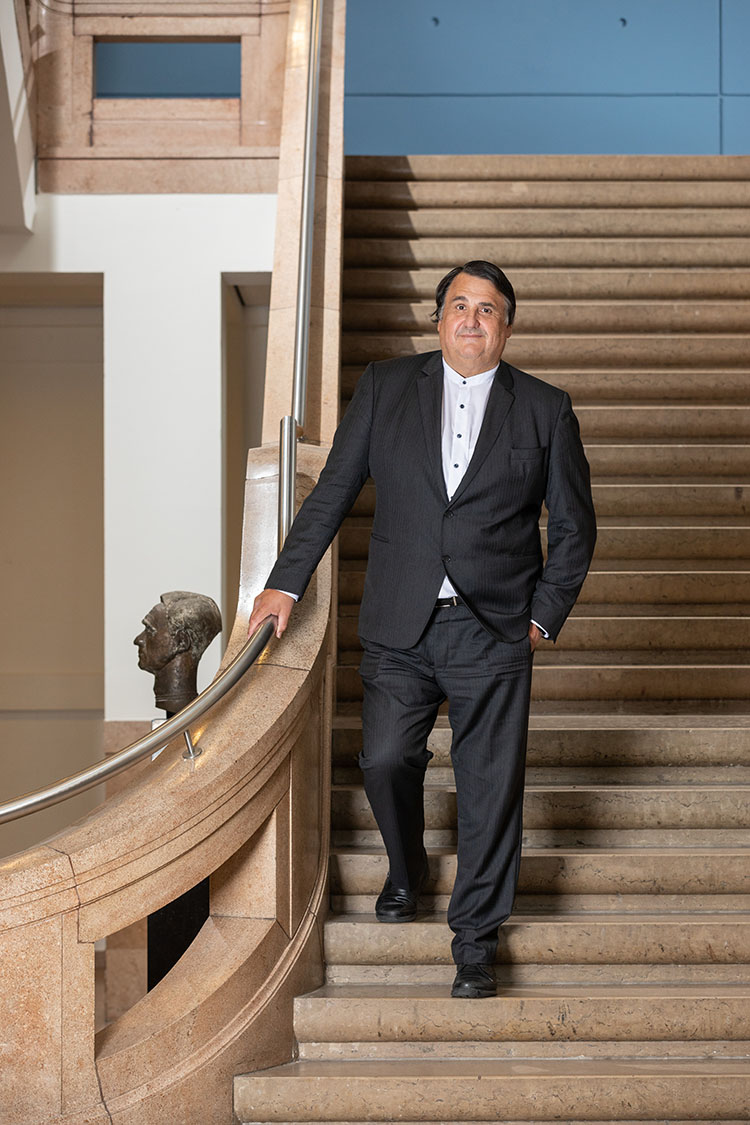
From his parents, Paul inherited values such as openness, pragmatism and freedom of choice. Likewise the urge to explore the world. “At the age of 17, just after the war, my mother spent a year working as an au pair in Lille, France. That was quite a challenge for her, as it was for me later on. It gave her friends for life and of course a great love of France. And she speaks excellent French. My father was a talented footballer, a striker, which I most definitely am not,” he smiles. “As a young man he had the opportunity to emigrate to America. He chose not to. He was an only child and didn’t want to leave his parents behind. He later regretted that decision. That international dream is definitely something I got from my parents.”
Inclusive
Paul believes that, as a director, you can effect change from above. “I recently met with the Bochum Executive Board and suggested we address each other informally, which is highly uncommon in Germany, but they were fine with it,” he laughs. “People in the Ruhr area are approachable, so if there’s one place I can put things in motion, it’s there.” He has already created a vice-rectorate for inclusion and talent development. “To my mind, the university should be a reflection of and set an example for society.”
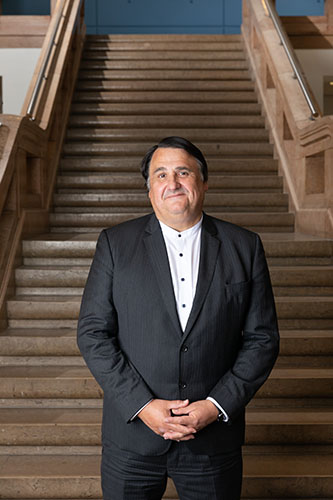
When he moved to Maastricht in 2008 as dean of the Faculty of Health, Medicine and Life Sciences, he noticed that professorial appointments were often age-related and there was a major imbalance between men and women. “As a result, many young people were leaving UM in frustration. Then came the idea to set up the top talent programme, which was a great success. In the first year, I asked all associate professors in the faculty to sign up and submit their CVs. Of the male associate professors, 100% wanted to participate; of the female ones, less than 50%. They came out with arguments like: I’m not done here yet, I’ve got children, I’m unsure. So in the second year, I went for a class with 100% women. Of course some people objected, but I persevered. In the previous Executive Board, with Luc Soete and Nick Bos, we made sure that four of the six deans were women. There’s a reason I chose ‘Women in Academia’ as the theme for the Opening of the Academic Year in 2015. Change starts at the top. And I’m optimistic about this. If a third of the appointments are women, you build a critical mass. With Rianne now setting the example, things will work out just fine.”
Paul is proudest of Young Universities for the Future of Europe (YUFE), a UM-led alliance of 10 universities. Subsidised by the European Commission, they have set up an inclusive European university spanning 10 countries. “The European idea of this university in this city in this region, as it is now anchored in the new strategic programme, is important to me. I’m very pleased about that.”
A courageous university
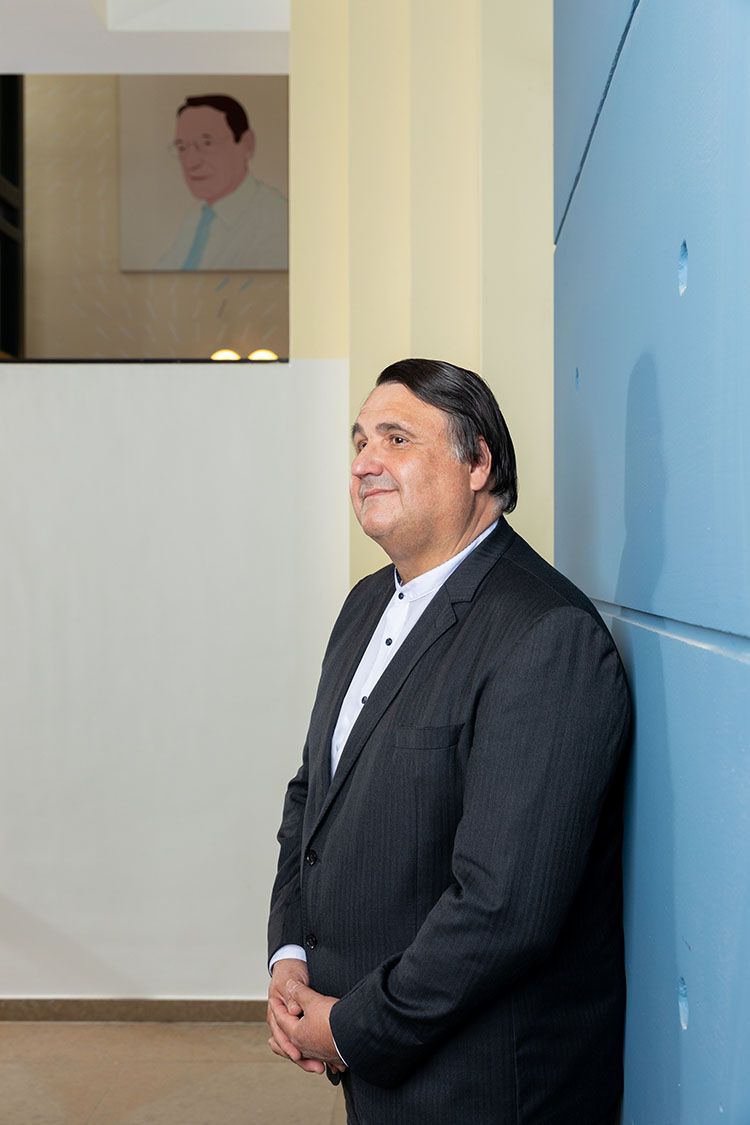
From experience, he has learnt that nobody can lead alone. “You do it together. Directors who think they can do everything alone will fail. UM has grown so much because for years it’s been a university that dares to think outside the box and approach things differently; that’s what really sets it apart from other Dutch universities. Even as the Executive Board has changed, that philosophy has remained the same, with the same risk appetite. Without that you wouldn’t dare to establish a University College or a Faculty of Science and Engineering or Brightlands. The people here have always been brave enough to go against the grain. Without all those different personalities, not only in the Executive Board but also on the work floor, UM would never have come this far. It is and will remain a special club.”
What does he see as his own personal qualities? “I’m pragmatic; I believe you shouldn’t take yourself too seriously. I’ve learnt not to be guided too much by my emotions—that’s progress. And I like being right, but I don’t mind being proven wrong. Looking back, things are better here than they were 10 years ago. The key is, as Willy Brandt once said, ‘der Politik der kleinen Schritte.’ I’m on board with that. Small steps, as long as they’re moving in the right direction; not a procession of Echternach. It’s about staying the course. Bottom line, I’m happy with what we’ve achieved here.”
Saying goodbye
“When I leave a place, I close the door behind me. At that point, you also get to know who your real friends are. Many people want to be in your orbit purely because you’re university president.” What will he miss most at UM? “The buildings. Bochum was one of the first universities built after the war: a big campus in the Brutalist style, with large block-like structures of rough, unfinished reinforced concrete. It’s a far cry from my beautiful office here in a former convent. Beyond that, it’s not about missing things or not missing them, it’s just different, full stop.”
Also read
-
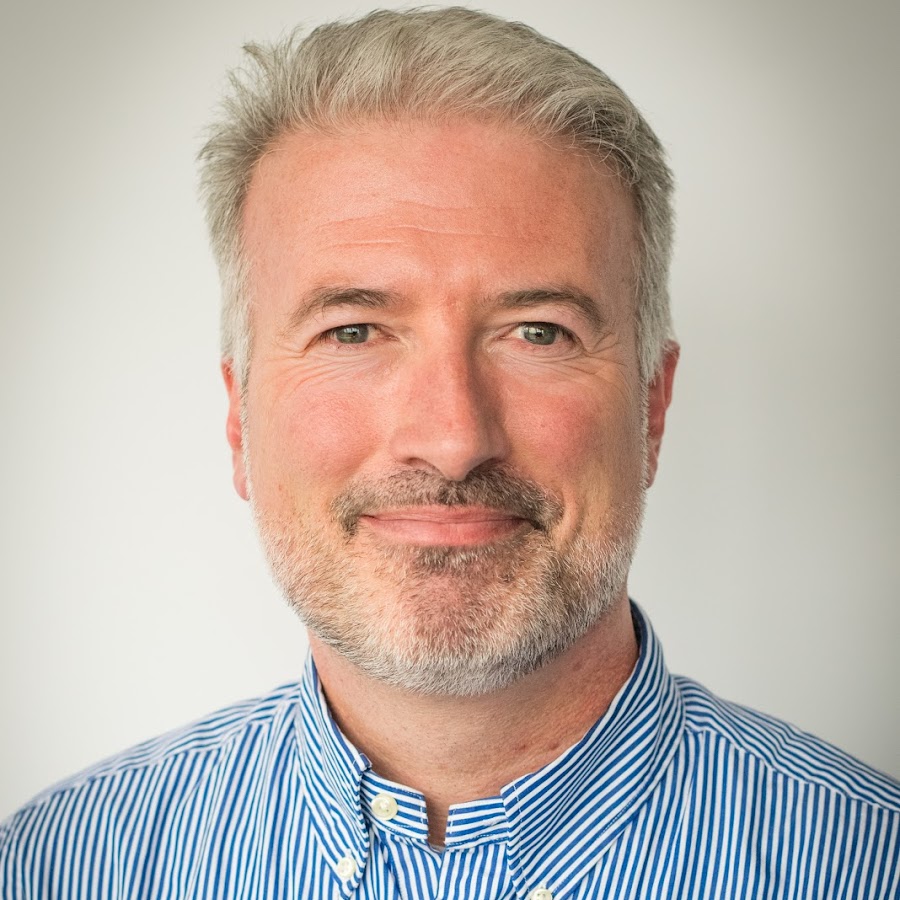
Frederik Claasen, the head of policy at our partner organisation Solidaridad Network on the opportunities and obstacles facing smallholder farmers in their data ecosystems.
-
Anne Roefs was awarded a Vici grant of €1.5 million. The professor of Psychology and Neuroscience of Abnormal Eating, was tossing up between a career as a scientist or a top chef.
-
Sexual harassment in public is becoming a punishable offence. It’s a good idea, says Suzan van der Aa, professor of Criminal Law and Criminal Procedure, but one that doesn’t go far enough. “Sexual harassment in the workplace is common too, and usually has a greater impact on the victims.”
